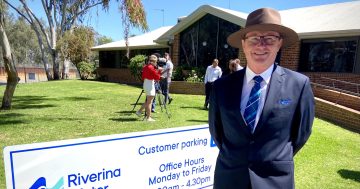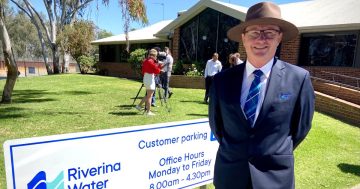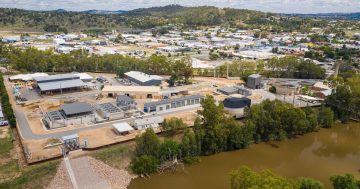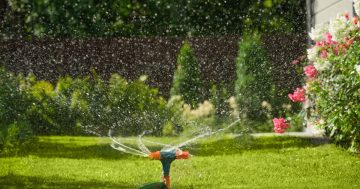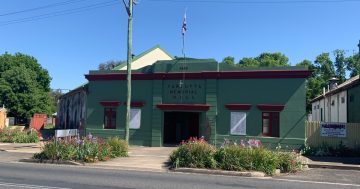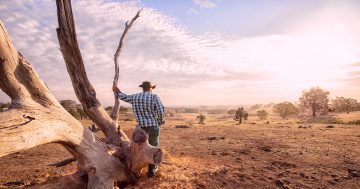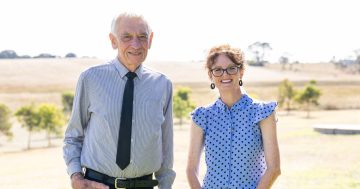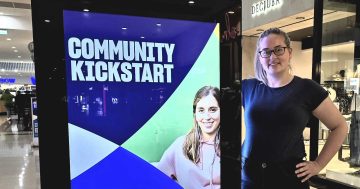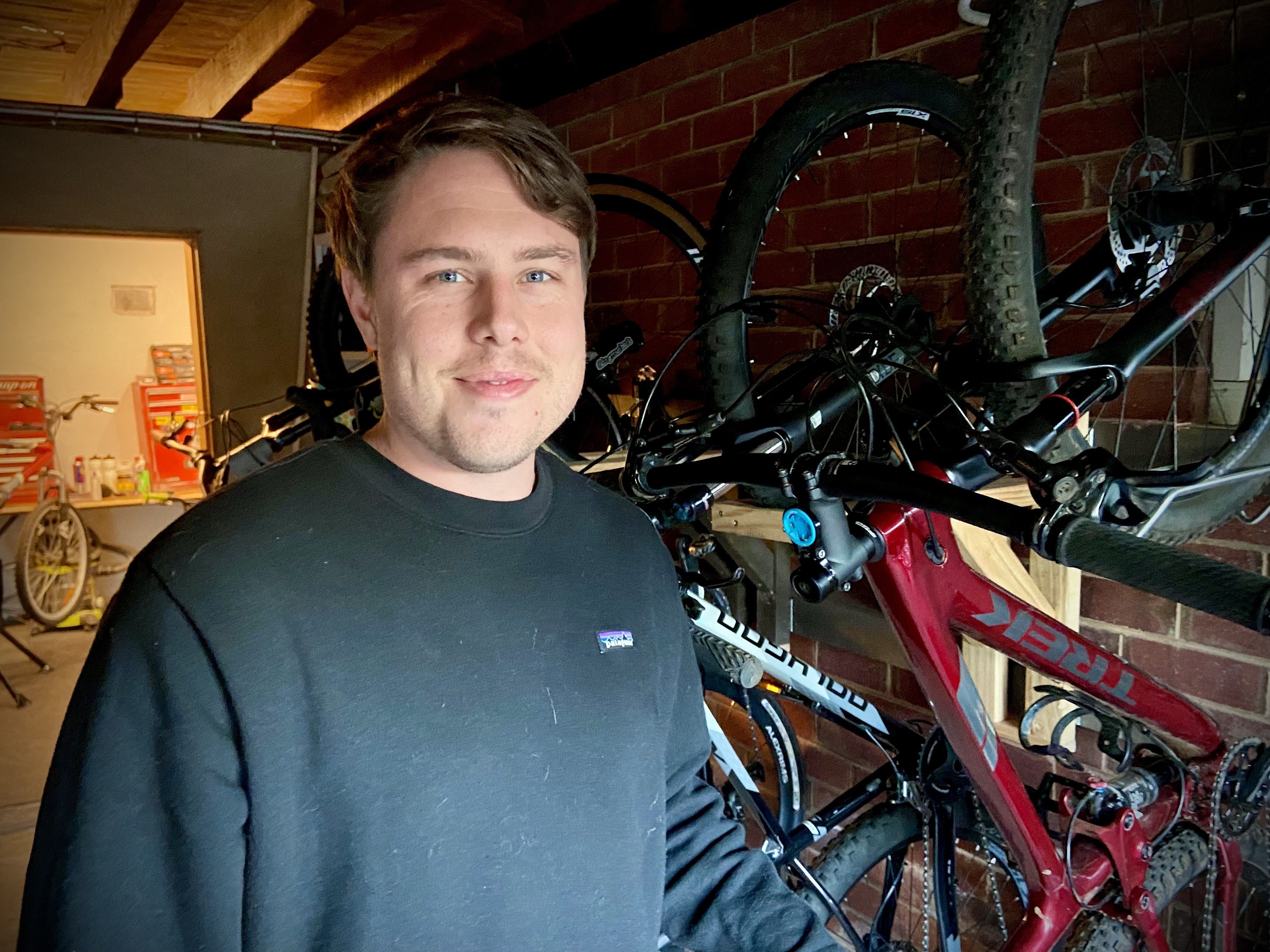
Tom Lemerle hopes the grant awarded to Wagga’s The Bike Canteen will help expand the program. Photo: Chris Roe.
Clubs, schools, community groups and artists across the Riverina will share $465,000 in funding from Riverina Water’s annual Community Grants Program.
Riverina Water CEO Andrew Crakanthorp says it’s all about backing the Riverina’s communities and their customers.
“We’re very proud that we’ve just completed the third year of this wonderful program, which returns the community’s money into projects that improve the life or the quality of life for so many of our customers,” he says.
Forty-seven grassroots projects across three categories have been awarded grants of between $5000 and $20,000.
“Water conservation is a high one [category] where we can reduce the amount of water used by community organisations,” Andrew says.
“Arts and culture is increasing in popularity and then the one that’s usually oversubscribed is community projects and facilities.”
Tom Lemerle runs Wagga’s The Bike Canteen, refurbishing donated cycles and passing them on to aspiring riders.
He says the program was a significant leg up for a small solo operation like his.
“We’ve made a bit of money doing raffles and selling singlets and stuff, but as the volume of bikes grows, we need more consistent funding and if we’re going to rent a space, then we’ll have to find that somewhere,” he says.
As well as moving the operation out of his garage, Tom says the money will go towards creating a stockpile of parts like tubes, chains and tyres and customised helmets.
He also plans to commission bike helmet designs by local artists to raise money for the artists and The Bike Canteen.
Andrew says a project like The Bike Canteen ticks all the right boxes.
“It’s quite innovative. There’s improved social connectivity because you have interaction between people who are looking for bikes. So if we can find a project like this that adds to the recycling and the circular economy we’ll certainly fund it,” he says.
Taster Property Op-shop at Wagga’s Tolland estate is another grant recipient.
Wiradjuri woman Toni Watts says the money will be used to establish an Indigenous garden.
“There’s a beautiful area out the front that I’ve wanted to do a yarning circle in to hold meetings and for the community to meet and sit and share stories,” she says.
The idea grew from there and they intend to plant native shrubs and fruit trees.
“It’d be nice for our kids to get back into that and learn some traditional foods. Learn what the native plants can do for you and how you can use them in cooking and for the elders to pass on that knowledge,” Toni says.
Andrew Crakanthorp says this year saw a real focus on Indigenous projects.
“I think that’s reflecting community sentiment and the journey we’re well and truly on now,” he says.
Original Article published by Chris Roe on About Regional.







